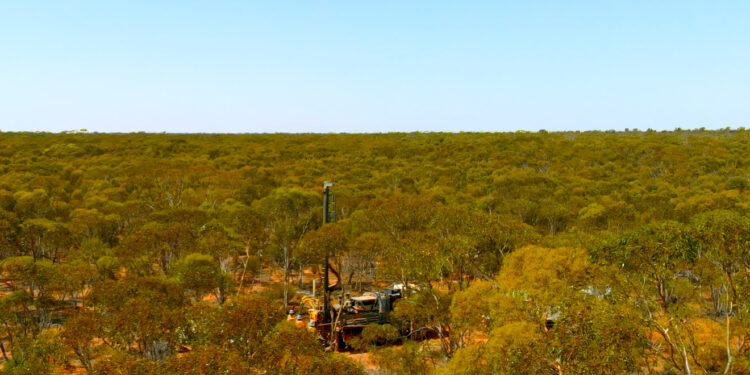Galileo Mining Ltd (ASX: GAL) has commenced diamond drilling at the exciting Callisto palladium-platinum-gold-rhodium-copper-nickel discovery within the company’s 100% owned Norseman project in Western Australia.
“Diamond core drilling is now underway at our Callisto discovery with plans for an initial 2,000 metres of drilling. Mineralisation at Callisto is open in all directions, and we will be using the diamond drill rig to focus on the down dip potential in particular. RC drill hole NRC278 finished in mineralisation and this will be the first diamond hole drilled at Callisto,” Managing Director, Brad Underwood, said.
“The diamond drilling is being conducted in conjunction with the ongoing RC drill program. We are one quarter of the way through the planned 10,000-metre program and have the capacity to extend the drill contract or to bring in more drill rigs as required.
“With no known outcrop, and over five kilometres of prospective strike, we consider that a significant opportunity exists for additional discoveries at shallow depths. The RC rig will be focussing on both the shallow sections of the known mineralisation as well as the excellent prospectivity for further discoveries along strike. We are very excited to be rapidly progressing this new discovery.”
2,479 metres of RC drilling has been completed of the planned 10,000 metre programme. Eight drill holes were completed to full depth through the disseminated sulphide zone within the ultramafic sill. Four drill holes were pulled up early to allow for diamond drill tails to be completed through the mineralised zone.
Assays have been received for drill holes NRC283, NRC284, NRC289, and NRC290. Results from these drill holes are in line with expectations and consistent with the grade distribution in the adjacent drill holes. The extent of sulphide mineralisation at Callisto, and the geometry of metal distribution within the sulphide zones, has yet to be determined.
Drilling is planned in every direction to provide the data required to understand the mineralised system. First laboratory assays from the current RC drilling programme are estimated to be available in early to mid-September.












